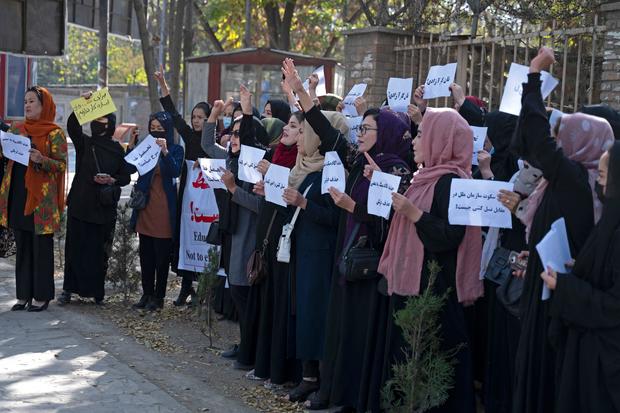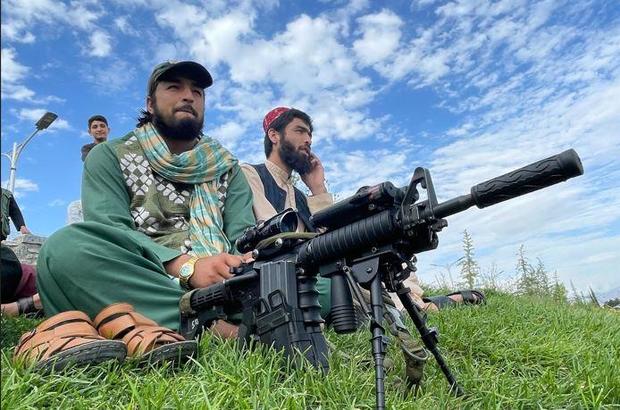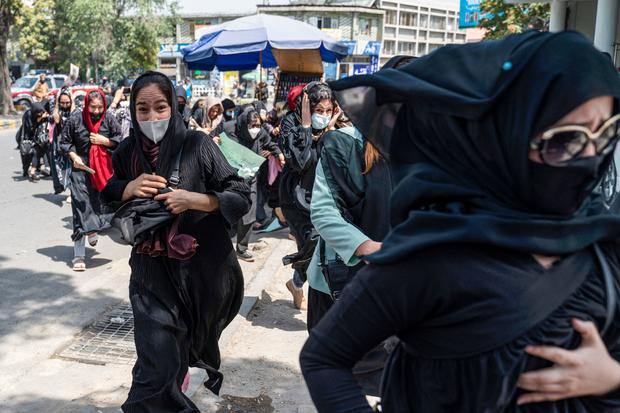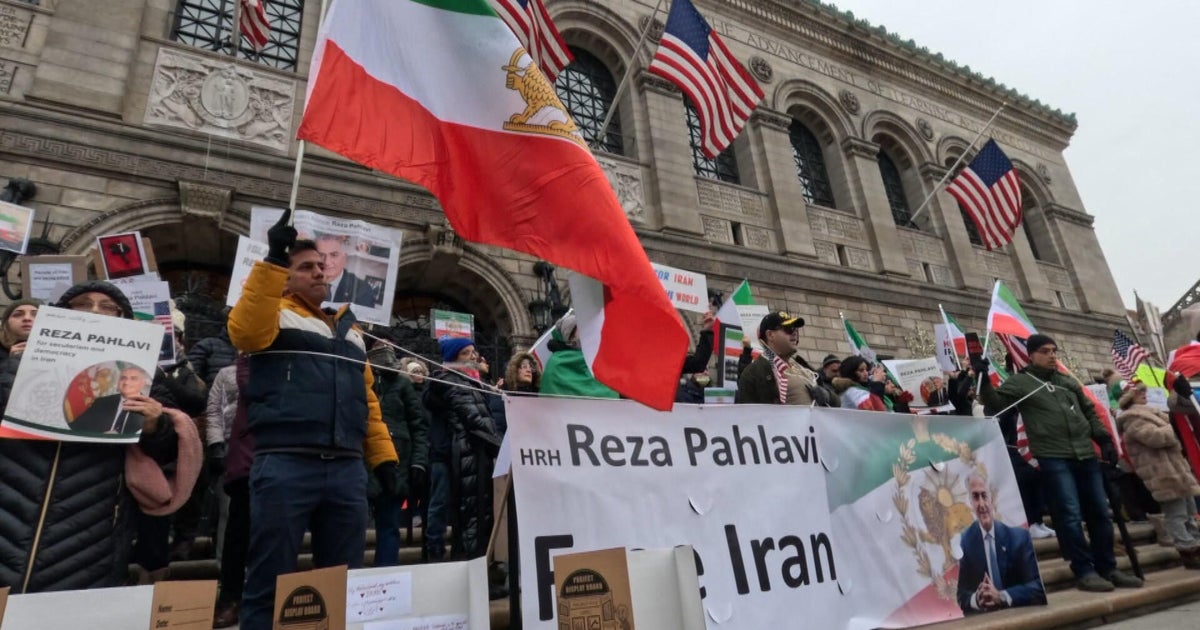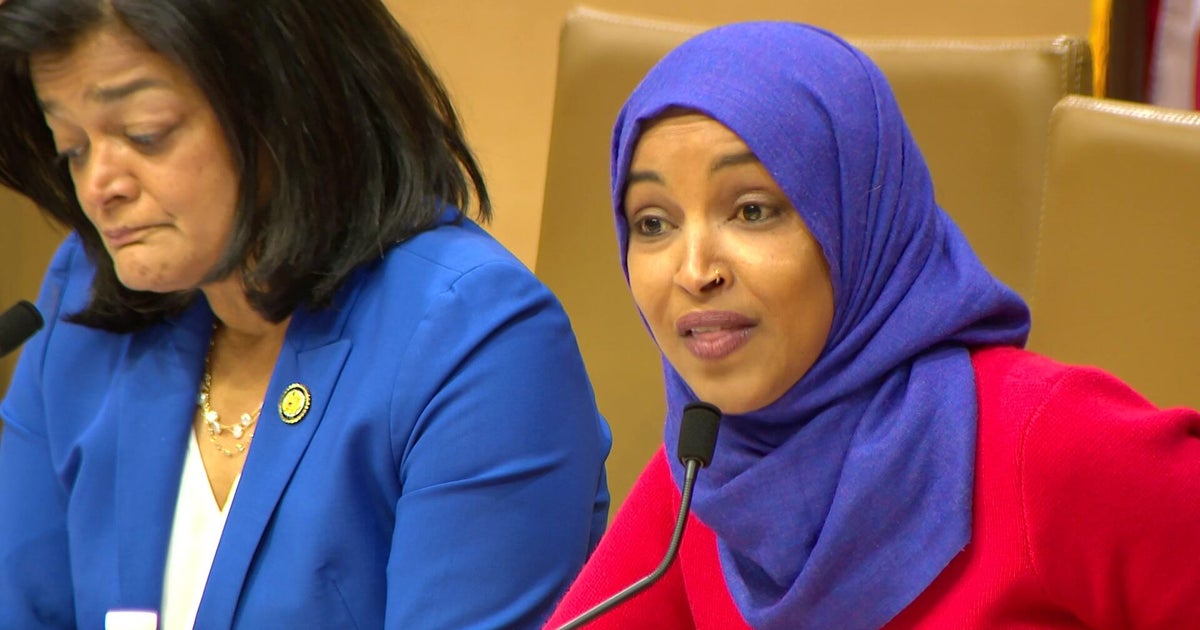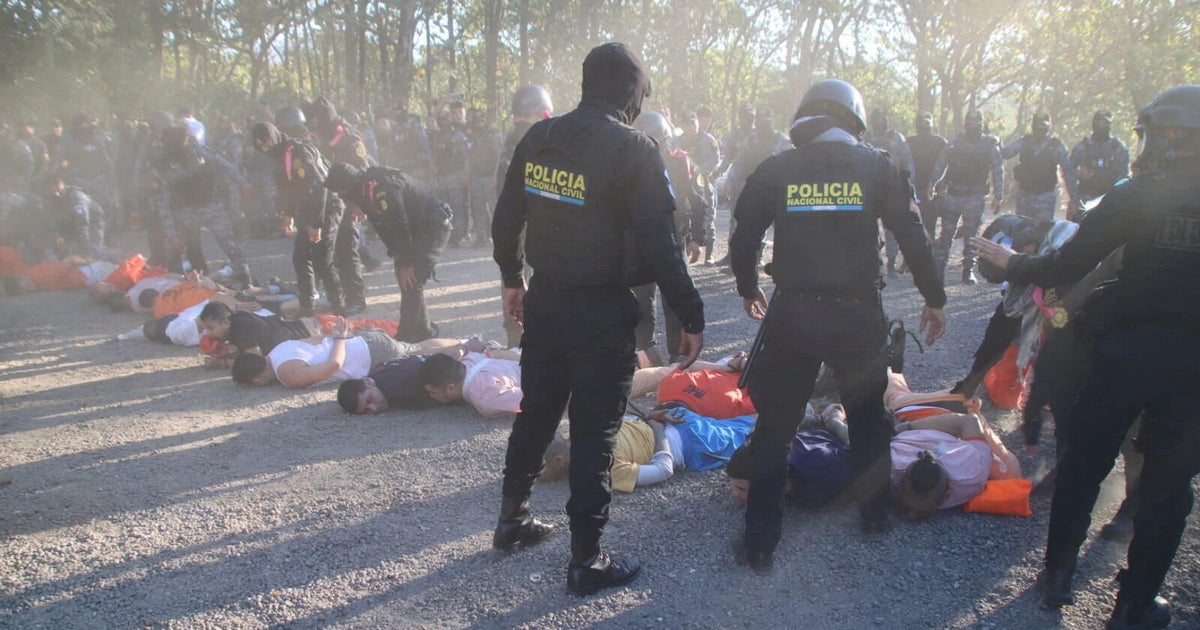As the Taliban doles out lashings, what have Afghan women and girls lost in 15 months under the extremists?
Afghanistan's Taliban rulers said over the weekend that 10 women and 11 men were lashed for crimes of theft, adultery and running away from their homes. The country's Supreme Court said each of those convicted was "lashed 39 times," in beatings meted out at the main mosque in the city of Taloqan, in the northern Takhar province, after Friday prayers last week. Local elders, scholars and residents watched.
A man and woman were also publicly lashed in a sports stadium last week in central Bamyan province, in what appeared to be the first official lashing implemented in the country since the Taliban retook power 15 months ago.
While the Taliban's harsh interpretation of Islamic "Shariah" law has had an undeniable impact on all Afghans, the country's women and girls have lost the most.
Below is a look at some of the most dramatic steps taken by the Taliban to systematically erase women from public life since August 2021, when the last U.S. soldier left the country.
In education:
During the 20 years of war that started with the U.S. and its allies invading to topple the Taliban from power in 2001, Afghanistan produced an educated class of women. Girls got formal education and went on to become journalists, parliamentarians, musicians, entrepreneurs and athletes. Some held positions in the government cabinet.
After retaking the country, however, the Taliban quickly abolished the Afghan Ministry of Women's Affairs and replaced it with the Ministry of Vice and Virtue.
Afghanistan is now the only country where girls are not permitted to attend school, with a ban on formal education once they reach the age of 12.
The hardliner's edict quickly drew scorn from the international community, and some brave Afghan women and girls repeatedly took to the streets to protest and demand their rights, but they faced a brutal Taliban response every time. Some still manage to learn in unofficial schools, but access is extremely limited.
"This is an internal matter of Afghanistan," Qahar Balkhi, a spokesman for the Taliban's Ministry of Foreign Affairs, insisted in an August interview with CBS News. "It is a mix of issues that has led to the suspension. There is the cultural aspect, and there is the financial aspect, lack of infrastructure and lack of books."
In October, the Taliban blocked young women about to sit their college entrance exams from choosing a range of subjects. Students told CBS News they were not allowed to choose majors such as journalism, engineering, economics, veterinary medicine, agriculture or geology.
At work:
The Taliban has barred women from working in most government institutions, forcing many to leave their jobs. In some cases, women have even been told to select a male relative to replace them.
In May, Taliban authorities ordered all female presenters and reporters on the country's TV channels to cover their faces on air. The edict was handed down by the Ministry of Vice and Virtue, which oversees and implements orders from the Taliban's supreme leader.
"This is me, Yalda Ali, a woman being erased on orders from the Ministry of Vice and Virtue," a female presenter on the TOLO network protested on her Instagram page at the time.
Women can no longer serve in any political office.
Some women have retained their jobs in the public sector, including in the fields of education and health, and they also continue to work in the private sector.
"150,000 females were working in the Ministry of Public Health, hospitals and clinics all over Afghanistan," senior Taliban political official Shuhail Shaheen said in a tweet.
But getting to work has also become harder for Afghan women lucky enough to still have jobs.
In transit:
Under the Taliban's rules, women must be accompanied by at least one male relative if they wish to travel more than about 45 miles. The Ministry of Vice and Virtue has also called on taxi drivers not to provide long-distance rides to women who are not wearing headscarves.
"The decision is taken to bring ease for women," Akef Mohajir, a Vice and Virtue Ministry spokesman, claimed to CBS News in August.
Shamsia Mahjabin, 29, lives in Kabul with her two children. She lost her husband in a suicide bombing in Kabul about four years ago. Since then, she had supported not only her family, but also her elderly in-laws.
"You killed my husband, leaving us without a breadwinner," she said of the Taliban. "Now you are forcing me to sit at home. How can I feed my children?"
Dress code:
In May, the Taliban's supreme leader published a ruling making the hijab, a traditional Muslim garment that covers a woman's hair, compulsory in all public settings. The decree also outlined "fair punishment" for violators of the decree.
"Not leaving home unnecessarily is the best way to observe hijab," said the order. "The house of a woman that does not observe hijab should be identified and her male guardian should be advised."
In the second step, a male guardian should be summoned, and in the third step, the guardian should be imprisoned for three days. If the woman is still determined to be in violation of the rule, "her guardian should be introduced to the court so that he could be sentenced to a fair punishment."
Even before the Taliban came back to power, many women in Afghanistan's deploy conservative society wore the hijab in public. Now they have no choice.
Out and about:
The Taliban's Ministry of Vice and Virtue issued an edict in November banning women from going to parks, gyms and public baths. The order also prohibits women from going to restaurants "without a male chaperon."
Ministry spokesman Akef Mohajer told reporters the new restrictions were issued because people were ignoring public gender segregation boundaries and women were not wearing the hijab properly.
Before the mandate, the Taliban had designated separate days of the week for men and women to visit parks. Gyms have always been gender-segregated in Afghanistan.
Voices silenced:
Taliban security forces have arrested dozens of Afghan women who have defied a ban on protests to take to the streets and demand their freedoms back. Security forces have responded to protesters' chants of, "Bread, work, freedom!" by firing live ammunition into the air to disperse the crowds.
In January, Taliban intelligence officers raided the house of Tamana Zaryab Paryani and arrested her and her two sisters. She streamed the encounter live on social media, screaming as the Taliban entered her home.
"I knew I had to speak out despite how dangerous the situation was. I did so that I could show the world what the Taliban are really like and what kind of group they are and how they seek to forcefully silence women," Paryani told CBS News months later. She spent almost a month behind bars.
Just last week, women's rights activists Zarifa Yaghubi and Farhat Popalzai were detained in Kabul.
"I'm the voice of the women who never been able to speak to anyone," Poplzai said in a video posted to social media. "I come outside to talk with Taliban and to help women who didn't go to work and go to school and I want to be the voice of them."
"The rights of @YaghubiZarifa & other activists must be respected. Reasons for their continued detention should be made public," the United Nations' mission in Afghanistan (UNAMA) said in a tweet, demanding access to the detained women and "clarity" on the whereabouts of others.
The Taliban has not responded to questions about the women detained last week.

